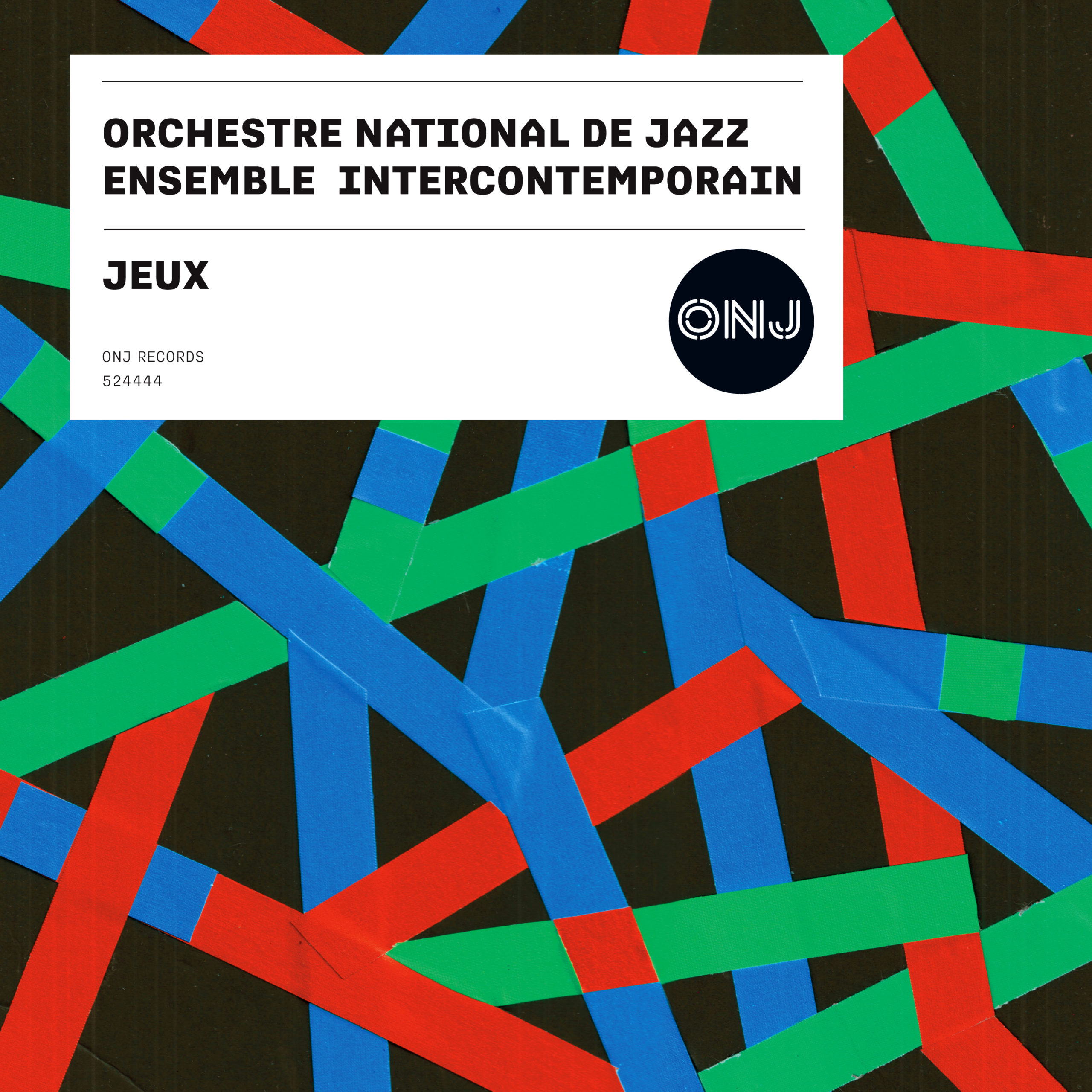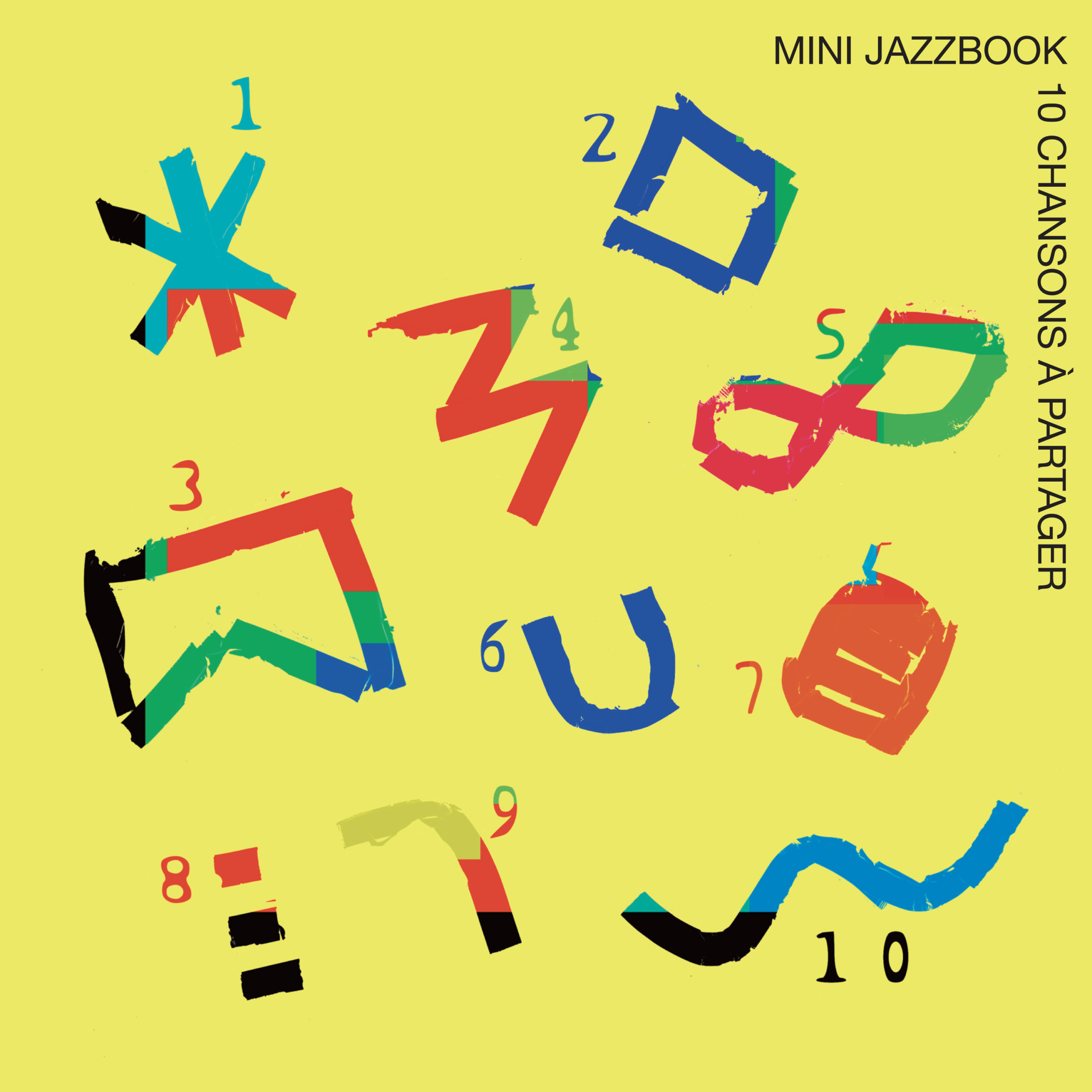Description
Le plaisir du jeu
Le mandat de Frédéric Maurin à la tête de l’ONJ se conclut avec Jeux qui referme, comme un cycle parfait, l’ensemble des programmes qu’il a mis en œuvre, en même temps que s’y ouvrent des perspectives vers l’avenir tant de l’institution que de celui qui fut son directeur artistique pour les années 2019-2024. On l’y a vu tout à la fois aboutir ce qu’il avait entrepris en créant le grand orchestre Ping Machine en 2005, et mettre en perspective, avec les compositeurs et chefs invités de son ONJ, quelques-uns des grands héritages exogènes dont s’est nourri le jazz dans la quête d’un équilibre toujours renouvelé entre écriture et improvisation.
Après l’invitation faite à Steve Lehman de collaborer à l’Ircam sur le programme Ex Machina aux frontières des musiques spectrales et de l’intelligence artificielle, Maurin a souhaité faire sauter un dernier rempart (qui ne demandait qu’à tomber) entre jazz et musique contemporaine, ainsi qu’entre les deux institutions ONJ (Orchestre National de Jazz) et EIC (Ensemble intercontemporain). Selon un recrutement volontaire parmi les solistes de ces deux formations, un orchestre paritaire dans tous les sens du terme s’est constitué autour de trois plumes : Andy Emler qui se réclame moins de la stricte tradition du jazz que de sa pratique de l’orgue et de la classe de Marius Constant, sans oublier ses expériences initiales dans le domaine du rock ; Sofia Avramidou, compositrice passée par l’Ircam et les enseignements de Philippe Manoury et Georges Aperghis, entre autres ; Frédéric Maurin lui-même qui, venant du rock et fort d’études en école de jazz et en classe d’écriture, a fait de la transversalité des langages musicaux une véritable vocation.
Pour qui assista aux répétitions et découvre aujourd’hui l’enregistrement du concert de création, il est stupéfiant de constater avec quel naturel ce collectif d’interprètes-improvisateurs s’est emparé des propositions des trois compositeurs ; naturel qui se traduit par la fluidité des enchaînements d’une partition à l’autre de chacune de ces quatre suites, dont la première se déploie à partir d’une improvisation collective, comme en guise de mise en jambes.
Certes, les habitués de la musique d’Andy Emler y reconnaîtront sa contribution, son esthétique tout à la fois très ouverte à l’initiative soliste, mais articulée autour de la plasticité rythmique et orchestrale de grooves identifiables et de tourneries d’une relative lisibilité mélodique traversés de contrepoints et de tutti orchestraux clairement délimités quoique souvent inattendus. À l’opposé, le caractère inextricable des masses et des textures signées Sofia Avramidou relève d’un étirement du temps. Celui-ci obéit à des prescriptions instrumentales et gestuelles d’une précision rythmique extrême sur un contenu mélodique le plus souvent laissé à l’initiative de l’improvisateur-interprète. L’écriture de Frédéric Maurin évolue entre ces deux attitudes, son expérience dans le domaine spectral convoquée à la lettre dans le final de Tone Box – Part 1 irriguant par ailleurs le reste de ses partitions “bien tempérées” par son modelage de la matière timbrale.
Le plaisir qui résulte de l’écoute de ces pièces n’est autre que celui que prirent ces quatorze musiciens à croiser leurs savoir-faire, à se laisser entraîner chacun sur le terrain de l’autre dans un climat de complicité dont témoigne tout particulièrement la pièce intitulée Deux clarinettes, célébration d’une amitié entre Catherine Delaunay (ONJ) et Alain Billard (EIC) qui date de leurs études de l’instrument dans la classe d’un champion de la transversalité, Jacques Di Donato.
Franck Bergerot
******
The Pleasure of Playing
Frédéric Maurin’s tenure at the helm of the ONJ comes to a close with Jeux, which brings full circle, like a perfect cycle, all the programs he has implemented, all the while opening up future prospects for both the institution and the man who was its Artistic Director from 2019 to 2024. It saw him bring to fruition what he had begun with the creation of the Ping Machine large ensemble in 2005 and give an overview, with the composers and guest conductors of his ONJ, of some of the great exogenous heritages that have nourished jazz in the quest for an ever-renewed balance between writing and improvisation.
Following the invitation extended to Steve Lehman to collaborate at IRCAM on the Ex Machina program exploring the frontiers of spectral music and artificial intelligence, Maurin was keen to break down the last wall (which was just waiting to fall) between jazz and contem-porary music, as well as between the two institutions that are the ONJ (Orchestre National de Jazz) and EIC (Ensemble intercontemporain). Based on voluntary recruitment among the soloists of these two formations, an orchestra with equal representation in every sense of the word was formed around three composers: Andy Emler, who draws less on the strict jazz tradition than his organ playing and the teachings of Marius Constant, not to mention his initial experience with rock music; Sofia Avramidou, a composer who studied at IRCAM with Philippe Manoury and Georges Aperghis, among others; and Frédéric Maurin himself, whose background in rock and studies both at a jazz school and in composition have allowed him to turn the transversality of musical languages into a real vocation.
For those who attended the rehearsals and now discover the recording of the premiere concert, it is astounding to note how effortlessly this collective of performers-improvisers took to the proposals of the three composers; a naturalness that is reflected in the fluidity of the sequences from one score to the next in each of the four suites, the first of which unfolds from a collective improvisation as if it were a mere warm-up.
Of course, those familiar with Andy Emler’s music will recognize his contribution and aesthetic, at once very open to solo initiative, yet articulated around the rhythmic and orchestral plasticity of identifiable grooves and relatively legible melodical turns scattered with counterpoints and orchestral tuttis that are clearly delineated although often unexpected. In contrast, the inextricable nature of Sofia Avramidou’s masses and textures is the result of a stretching of time according to instrumental and gestural prescriptions of extreme rhythmic precision over a melodic content most often left to the initiative of the improviser-performer. Frédéric Maurin’s writing develops between these two demeanors, his experience in the spectral field being harnessed to the letter in the finale of Tone Box – Part 1, irrigating the rest of his « well-tempered » scores through his shaping of timbral matter.
The pleasure that derives from listening to these tunes is none other than that of the fourteen musicians as they blended their know-how, letting themselves be drawn onto each other’s turf in an atmosphere of complicity, as evidenced in particular by the piece entitled Deux clarinettes, a celebration of a friendship between Catherine Delaunay (ONJ) and Alain Billard (EIC) that dates back to their studies of that instrument under transversality champion Jacques Di Donato.
Franck Bergerot










